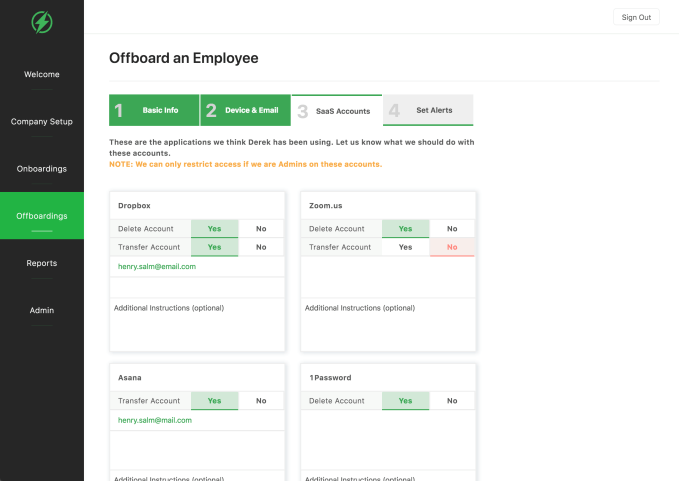//
News is exhausting. Mexican murders are sky-high. Ebola is ravaging the eastern Congo. China is erasing an entire culture of Islam from its Western hinterlands. That news — negative and intense though it is — can easily occlude the many positive, longer term stories that are fundamental drivers of the world. Africa is reaching new levels of prosperity. Violence around the world is in retreat. Famine is down, a lot.
These trends are present, but getting high-quality data around them and correctly interpreting them can be challenging. How do you piece all these disparate threads together and start to make sense of the whole?
Enter Our World in Data. The non-profit startup, which started as a research project at Oxford University, builds datasets on human progress around the world and then uses visualizations and deep, clear explanations to allow people to grok exactly what’s happening as well as how to think about it.
Our World in Data is backed by YC in its current batch, and is one of three non-profits this cycle (we profiled another one of them, Upsolve, which is helping consumers file for bankruptcy). The portal has been receiving about a million users per month and two citations a day in major newspapers, and the team is hoping to scale those metrics up as part of the YC program.
Max Roser, the founder and program director, officially organized the firm as a non-profit a few weeks ago, but has been working on it with a team of researchers over many years. “It began kind of slowly as a research project in around 2012,” he said. It was “a fairly small-scale project in the evenings and weekends in the beginning and got bigger and bigger over time.”
He points out that the progress we have seen in human society has happened at a blistering fast rate. “Even in today’s richest and happiest places, the changes have happened very recently. […] Just two hundred years ago, a huge majority of the population lived in extreme poverty.”
Roser sees an opportunity to revolutionize how academic research is disseminated with Our World in Data. “Our mission is to get research out of institutions,” he explained. “We come from this millennium-old institution with University of Oxford … and they have published research in exactly the same way since the invention of the printing press. […] In the communication of research, we haven’t adopted the technologies available with the internet at all … and we are trying to bring these two worlds together.”
Hannah Ritchie, a researcher with the project who holds a PhD in GeoSciences from the University of Edinburgh, said that “our top priority is reaching as many people as we can” and she sees the project becoming the “really credible go-to reference.”
Our World in Data may not be a conventional startup, but it is hitting a thesis close to home here. Arman and I have been doing a dive into the world of societal resilience startups – companies that are trying to protect humanity from itself by building self-healing systems, improving the climate, making our traffic more on time, improving the speed of construction and much, much more. But before we can do all that, we first need to understand what’s even going on with our world in the first place, and that is where Roser, Ritchie and the rest of their research team here can be hugely helpful.
Share your feedback on your startup’s attorney
We want to help startup founders work with attorneys who are right for them. My colleague Eric Eldon wrote a piece today describing our methodology and a little bit more of why we are doing this project.
We have had hundreds of founders give us their recommendations. If you have worked with a great early-stage startup attorney that you recommend, let us know using this short Google Forms survey and also spread the word. We will share the results and more in the coming weeks.
Stray Thoughts (aka, what I am reading)
Short summaries and analysis of important news stories
Startup socialism with capitalist characteristics
Robert P. Baird does a great job describing the rise of Jacobin, the socialist magazine startup that has become a linchpin in leftist politics. It’s a story of a college founder who hustled his way to financial independence and growth. From the article:
Sunkara, for his part, told me that there’s no contradiction between his entrepreneurial enthusiasm and his socialist ideals. “The market logic of creating a publication,” he says—attracting readers, getting them to subscribe, finding competitive advantages that will keep them on the rolls—“is politically pure.”
Is Surveillance Capitalism a thing?
Nicholas Carr wrote a deep dive review for the LA Review of Books of Shoshana Zuboff’s hot new book “The Age of Surveillance Capitalism.” There has been a ton of discussion triggered here, particularly in light of France’s record $57 million fine against Google over GDPR violations earlier this week, and Carr wrote what is probably the best review and context piece available. Still, the question to me remains the same: does anyone actually care that their devices monitor them? Judging by device and services sales, I think much less than privacy advocates appreciate.
Why are investors still investing in Apple’s supply chain?
Bloomberg has an interesting conundrum to discuss: why are investors still standing behind companies like Han’s Laser Technology Industry Group Co., which have seen huge valuation losses over the slowdown in iPhone sales? It’s a bit of a complicated story, but basically investors still believe that high-end manufacturing will drive excess profits even in a chaotic, slower growing, and competitive world. An interesting discussion worth reading.
What’s next & obsessions
- I have a lot of short books on my desk to read.
- Arman is reading Never Lost Again by Bill Kilday, a history of mapping at Google and beyond.
- Arman and I are interested in societal resilience startups that are targeting areas like water security, housing, infrastructure, climate change, disaster response, etc. Reach out if you have ideas or companies here <danny@techcrunch.com>
from Startups – TechCrunch https://tcrn.ch/2TaOXV0


 Idera, which itself is
Idera, which itself is